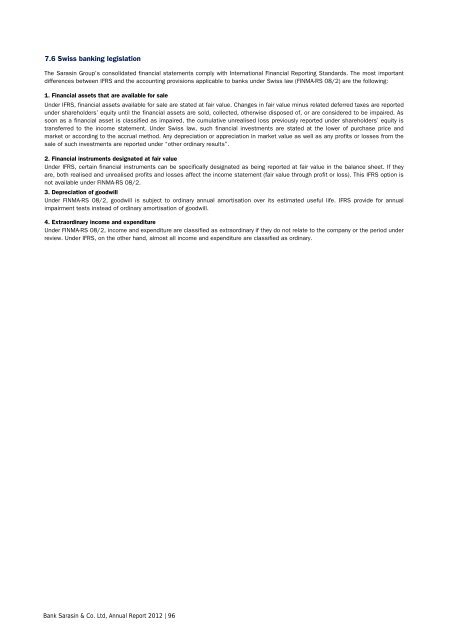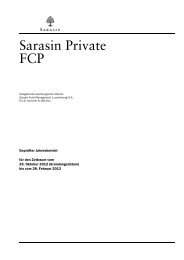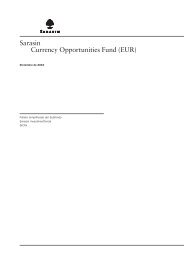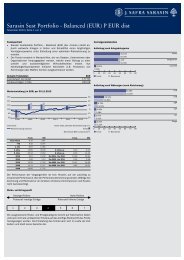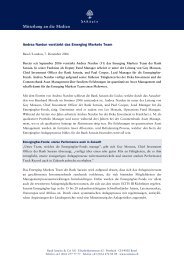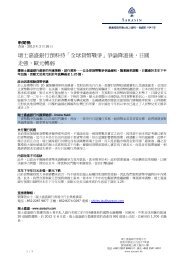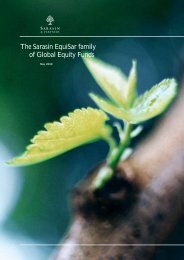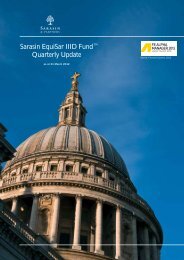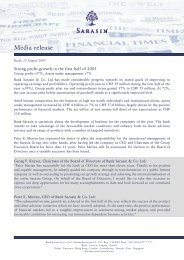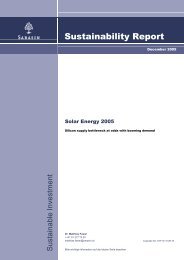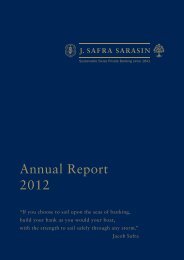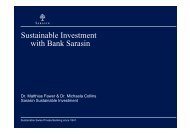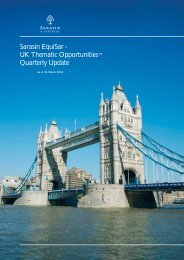Annual Report 2012 - Bank Sarasin
Annual Report 2012 - Bank Sarasin
Annual Report 2012 - Bank Sarasin
Create successful ePaper yourself
Turn your PDF publications into a flip-book with our unique Google optimized e-Paper software.
7.6 Swiss banking legislation<br />
The <strong>Sarasin</strong> Group’s consolidated financial statements comply with International Financial <strong>Report</strong>ing Standards. The most important<br />
differences between IFRS and the accounting provisions applicable to banks under Swiss law (FINMA-RS 08/2) are the following:<br />
1. Financial assets that are available for sale<br />
Under IFRS, financial assets available for sale are stated at fair value. Changes in fair value minus related deferred taxes are reported<br />
under shareholders’ equity until the financial assets are sold, collected, otherwise disposed of, or are considered to be impaired. As<br />
soon as a financial asset is classified as impaired, the cumulative unrealised loss previously reported under shareholders’ equity is<br />
transferred to the income statement. Under Swiss law, such financial investments are stated at the lower of purchase price and<br />
market or according to the accrual method. Any depreciation or appreciation in market value as well as any profits or losses from the<br />
sale of such investments are reported under “other ordinary results”.<br />
2. Financial instruments designated at fair value<br />
Under IFRS, certain financial instruments can be specifically designated as being reported at fair value in the balance sheet. If they<br />
are, both realised and unrealised profits and losses affect the income statement (fair value through profit or loss). This IFRS option is<br />
not available under FINMA-RS 08/2.<br />
3. Depreciation of goodwill<br />
Under FINMA-RS 08/2, goodwill is subject to ordinary annual amortisation over its estimated useful life. IFRS provide for annual<br />
impairment tests instead of ordinary amortisation of goodwill.<br />
4. Extraordinary income and expenditure<br />
Under FINMA-RS 08/2, income and expenditure are classified as extraordinary if they do not relate to the company or the period under<br />
review. Under IFRS, on the other hand, almost all income and expenditure are classified as ordinary.<br />
<strong>Bank</strong> <strong>Sarasin</strong> & Co. Ltd, <strong>Annual</strong> <strong>Report</strong> <strong>2012</strong> | 96


